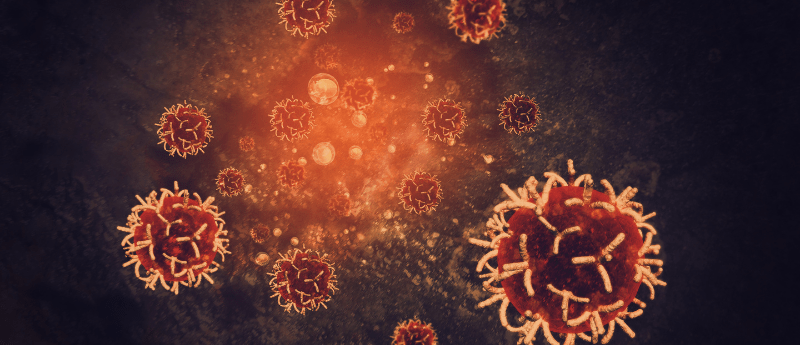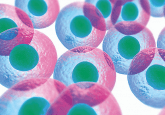Why shared decision-making is key to navigating the breast cancer treatment landscape

This article has been commissioned and funded by Novartis Pharmaceuticals Ltd
The ESMO Congress this year in Paris (9–13th September 2022) highlighted the latest advances in oncology, with nearly 30,000 participants exchanging ideas and insights. Breast cancer treatments were high on the agenda with presentations raising questions around increased patient survival and the impact on quality of life.
The volume of presentations at ESMO represents significant changes and advancements in the breast cancer treatment landscape. This has evolved immensely over the last decade with the emergence of new and novel therapies, targeted therapies and adjuvant treatments leading to improved patient outcomes.
Whilst positive for patients and clinicians, the combination of a complex treatment environment and continued pressures on the health service in the UK has led to delayed diagnosis and treatment challenges. This is underpinned by capacity issues and understaffing as the NHS recovers from the impact of the pandemic.
With the ever-growing choice of treatments and increasing pressures on resources, shared decision-making is one of the simplest ways for clinicians to navigate this changing landscape – by understanding the individual patient’s goals and using this to inform treatment decisions.
For clinicians there are many considerations and challenges as they look for the most effective and efficient treatments in advanced breast cancer. Whilst clinicians want to ensure patients are included in a shared decision-making process, they want to balance the need to share knowledge and potential risks without overwhelming their patients.
On the other hand, many patients feel they aren’t being asked enough about their views on treatments and want to have more of a dialogue with their consultants. Whilst NICE policy on shared decision-making exists, there is a spectrum on how this is applied. The latest CPES21 Standard National Cancer Report data showed lots of positive patient experiences, but the report did also find that over a quarter of breast cancer patients (28%) said they did not discuss options for managing the long-term side effects of treatments on day-to-day activities, and a similar number (26%) were not given information on how to access practical advice on dealing with immediate side effects [1]. While many are already starting to focus on shared decision-making during this process, more must be done to help facilitate these conversations around different treatment options between patients and their clinicians.
The good news is that there are increasing tools available to implement shared decision making such as “Ask-Tell-Ask,” – a collaborative communication method that includes asking patients open-ended questions and assessing their existing knowledge before sharing information to enable collaborative working. Others approaches include the SPIKES protocol, providing a step-by-step framework for difficult discussions with patients.
However the conversation unfolds, when faced with an incurable disease the hope for many is to live as long and as well as possible – but what does that mean for the individual and how does that support treatment decisions?
Whilst overall survival remains the gold standard in treatment outcomes, there are more efforts to increase quality of life data. The goal for advanced breast cancer treatment is to help people live longer and live well, and Kisqali® (ribociclib), for example, continues to deliver a significant survival benefit, both progression free and overall survival (PFS and OS), while also maintaining quality of life, even for those with harder-to-treat disease and giving people more time with family and friends.
Ribociclib is a CDK4/6i, consistently demonstrating statistically significant PFS, and OS as a secondary endpoint, while maintaining or improving quality of life across three Phase III trials compared to placebo and endocrine therapy, regardless of patient or disease characteristics [2,3,4,5,6,7,8,9,10,11,12,13].
At Novartis, our priority over the past 30 years has been to develop and deliver treatments to improve and extend lives of those diagnosed with secondary breast cancer . Through our work with patient groups and families we know the difference a patient centered approach can have on transforming care and quality of life
References:
- National Cancer Patients Survey 2021
ncpes.co.uk/
Accessed September 2022 - Yardley DA, Yap YS, HA Azim et al. Pooled exploratory analysis of survival in patients (pts) with HR+/HER2- advanced breast cancer (ABC) and visceral metastases (mets) treated with ribociclib (RIB) + endocrine therapy (ET) in the MONALEESA (ML) trials. Presented at the European Society of Medical Oncology (ESMO) Congress. September 9–13 2022. Abstract #205P.
- Neven P, Fasching PA, S Chia et al. Updated overall survival (OS) results from the first-line (1L) population in the Phase III MONALEESA-3 trial of postmenopausal patients with HR+/HER2- advanced breast cancer (ABC) treated with ribociclib (RIB) + fulvestrant (FUL). Presented at the European Society for Medical Oncology (ESMO) Breast Cancer Congress. May 4, 2022. Abstract #LBA4, May 4 2022.
- Hortobagyi GN, Stemmer SM, Burris HA et al. Overall survival with ribociclib plus letrozole in advanced breast cancer. Engl. J. Med. 386:942–50 (2022).
- Hortobagyi GN, et al. Overall survival (OS) results from the Phase III MONALEESA (ML)-2 trial of postmenopausal patients with hormone receptor positive/human epidermal growth factor receptor 2 negative (HR+/HER2−) advanced breast cancer (ABC) treated with endocrine therapy (ET) ± ribociclib. Presented at the European Society of Medical Oncology (ESMO) Congress, September 16–21 2021. Abstract #LBA17.
- Im, S-A, Lu Y-S, Bardia A et al. Overall survival with ribociclib plus endocrine therapy in breast cancer. Engl. J. Med. 381:307–316 (2019).
- Slamon DJ, Neven P, Chia S et al. Overall survival with ribociclib plus fulvestrant in advanced breast cancer. Engl. J. Med. 382(6):514–24 (2020).
- Slamon, DJ, Neven P, Chia S et al. Overall survival (OS) results of the Phase III MONALEESA-3 trial of postmenopausal patients (pts) with hormone receptor–positive (HR+), human epidermal growth factor 2–negative (HER2−) advanced breast cancer (ABC) treated with fulvestrant (FUL) ± ribociclib (RIB). Presented at the European Society of Medical Oncology (ESMO) Congress, September 29 2019, Barcelona, Spain. Abstract #LBA7.
- Slamon D, Neven P, Chia S, et al. Updated overall survival (OS) results from the Phase III MONALEESA-3 trial of postmenopausal patients (pts) with HR+/HER2− advanced breast cancer (ABC) treated with fulvestrant (FUL) ± ribociclib (RIB). Presented at the American Society of Clinical Oncology (ASCO) Annual Meeting, June 5 2021. Abstract #1001.
- Tripathy D, Im S-A, Colleoni M, et al. Updated overall survival (OS) results from the phase III MONALEESA-7 trial of pre- or perimenopausal patients with HR+/HER2− advanced breast cancer (ABC) treated with endocrine therapy (ET) ± ribociclib. Presented at the San Antonio Breast Cancer Symposium, December 9 2020. Abstract #PD2-04.
- Yardley DA, Nusch A, Yap YS al. Overall survival (OS) in patients (pts) with advanced breast cancer (ABC) with visceral metastases (mets), including those with liver mets, treated with ribociclib (RIB) plus endocrine therapy (ET) in the MONALEESA (ML) -3 and -7 trials. Presented at the American Society of Clinical Oncology (ASCO) Annual Meeting 2020. Abstract #1054.
- O’Shaughnessy J, Stemmer SM, Burris HA et al. Overall survival subgroup analysis by metastatic site from the Phase III MONALEESA-2 study of first-line ribociclib + letrozole in postmenopausal patients with HR+/HER2− advanced breast cancer. Presented at the San Antonio Breast Cancer Symposium, December 7–10 2021. Abstract #GS2-01.
- Novartis Data on File. Novartis Pharmaceuticals Corp: 2021.
UK| October 2022 | 237241
In association with:
The opinions expressed in this article are those of the author and do not necessarily reflect the views of Oncology Central or Future Science Group.





